 | TODAY IN SCIENCE HISTORY
NEWSLETTER - 20 DECEMBER |
 On 20 Dec 1900, Nature reported the Musical Arcs invented by William Duddell, an English physicist. By means of an arrangement of electric currents he produced a musical note from an arc lamp that could be altered to any pitch is obtained and a tune played. This may be regarded as the first fully electric instrument. More information is in the Obituary of William Du Bois Duddell from Proceedings of the Royal Society of London (1918). On 20 Dec 1900, Nature reported the Musical Arcs invented by William Duddell, an English physicist. By means of an arrangement of electric currents he produced a musical note from an arc lamp that could be altered to any pitch is obtained and a tune played. This may be regarded as the first fully electric instrument. More information is in the Obituary of William Du Bois Duddell from Proceedings of the Royal Society of London (1918). |
 On 20 Dec 2002, Grote Reber died, the amateur astronomer who built the first radio telescope and pioneered radio astronomy. Today's Science Store pick is: It Doesn't Take a Rocket Scientist: Great Amateurs of Science, by John Malone who gives an enlightening survey of accomplished amateurs: the mavericks, misfits, unschooled investigators who have been responsible for some of the greatest scientific discoveries in history. It is available New from $6.00. Used from $3.72. (As of time of writing.). On 20 Dec 2002, Grote Reber died, the amateur astronomer who built the first radio telescope and pioneered radio astronomy. Today's Science Store pick is: It Doesn't Take a Rocket Scientist: Great Amateurs of Science, by John Malone who gives an enlightening survey of accomplished amateurs: the mavericks, misfits, unschooled investigators who have been responsible for some of the greatest scientific discoveries in history. It is available New from $6.00. Used from $3.72. (As of time of writing.). | | For picks from earlier newsletters, see the Today in Science History Science Store home page. | |
 | Advances in medicine and agriculture have saved vastly more lives than have been lost in all the wars in history. - Carl Sagan, American astronomer, exobiologist and writer (died 20 Dec 1996).  |
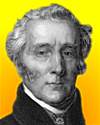 | It would be well if engineering were less generally thought of, and even defined, as the art of constructing. In a certain important sense it is rather the art of not constructing; or, to define it rudely but not inaptly, it is the art of doing that well with one dollar, which any bungler can do with two after a fashion. - Arthur Mellen Wellington, American civil engineer, writer and editor (born 20 Dec 1847).  |
 | The zoologist is delighted by the differences between animals, whereas the physiologist would like all animals to work in fundamentally the same way. - Sir Alan Hodgkin, English physiologist and biophysicist (died 20 Dec 1998).  |
| Before you look at today's web page, see if you can answer some of these questions about the events that happened on this day. Some of the names are very familiar. Others will likely stump you. Tickle your curiosity with these questions, then check your answers on today's web page. |
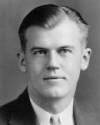 | An American physicist, born 20 Dec 1901, invented a type of high-voltage electrostatic generator that serves as a type of particle accelerator. A dome of great radius will inhibit the electric discharge and create stored charge at a high voltage.
 Can you name this scientist? |
 | Carl Edward Sagan (1934-1996) was a U.S. astronomer and exobiologist and science writer, studied such diverse aspects of the solar system as the conditions of planetary surfaces and atmospheres and the possibility of extraterrestrial life; he stimulated popular interest in these subjects through his enthusiastic writings, lectures, and the television series.
 Can you name his TV series? |
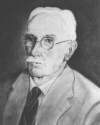 | Henry Horatio Dixon (1869-1953) was an Irish botanist who answered the question, “How can the sap in trees travel upwards, instead of flow down due to gravity?” Although disputed for a time, Henry's experiments confirmed his theory, and is now completely accepted.
 What was Henry's answer to the question? |
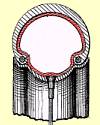 | On 20 Dec of a certain year, the first U.S. patent was issued for a pneumatic automobile tire that could readily and easily be detached or mounted to the rim of a wheel. The inventors claimed as their improvement a wheel with an exterior grooved rim with flanges to retain a tire with an inflatable tube.
 In which decade was this U.S. patent for such a type of tire issued? |
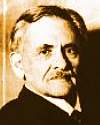 | On 20 Dec 1907, the first American scientist to be so honoured received the Nobel Prize. He was physicist.
 Can you name this first American physicist to win a Nobel Prize? |
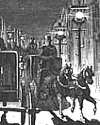 | On 20 Dec 1880, New York's Broadway was first lighted by electricity. Charles F. Brush successfully demonstrated his arc lamps along Broadway. His arc lights preceded Edison's incandescent light bulb in commercial use. Arc lights were suited to applications where a bright light was needed, such as street lights and lighting in commercial and public buildings.
 By what name did Broadway become known as a result of this lighting? |
When you have your answers ready to all the questions above, you'll find all the information to check them, and more, on the December 20 web page of Today in Science History. Or, try this link first for just the brief answers.
Fast answers for the previous newsletter for December 19: speed of light • East Africa • Robert Andrews Millikan • Alois Alzheimer recognized Alzheimer's disease • 8800 • suspenders. |
 If you enjoy this newsletter, the website, or wish to offer encouragement or ideas, please send feedback by using your mail reader Reply button. If you enjoy this newsletter, the website, or wish to offer encouragement or ideas, please send feedback by using your mail reader Reply button.
Your click on a StumbleUpon, Google+ or Facebook social button on the site webpages is also a welcome sign of appreciation. Thank you for using them. |
To find citations for quotations go to the corresponding webpage by clicking on the “quotes” balloon icon. Sources for the thumbnails appear on today's webpage with the corresponding item.
� This newsletter is copyright 2013 by todayinsci.com. Please respect the Webmaster's wishes and do not put copies online of the Newsletter � or any Today in Science History webpage. (If you already have done so, please remove them. Thank you.) Offline use in education is encouraged such as a printout on a bulletin board, or projected for classroom viewing. Online, descriptive links to our pages are welcomed, as these will provide a reader with the most recent revisions, additions and/or corrections of a webpage. For any other copyright questions, please contact the Webmaster by using your mail reader Reply button. |
--
If you do not want to receive any more newsletters,
Unsubscribe To update your preferences and to unsubscribe visit
this link 


 On 20 Dec 1900, Nature reported the Musical Arcs invented by William Duddell, an English physicist. By means of an arrangement of electric currents he produced a musical note from an arc lamp that could be altered to any pitch is obtained and a tune played. This may be regarded as the first fully electric instrument. More information is in the Obituary of William Du Bois Duddell from Proceedings of the Royal Society of London (1918).
On 20 Dec 1900, Nature reported the Musical Arcs invented by William Duddell, an English physicist. By means of an arrangement of electric currents he produced a musical note from an arc lamp that could be altered to any pitch is obtained and a tune played. This may be regarded as the first fully electric instrument. More information is in the Obituary of William Du Bois Duddell from Proceedings of the Royal Society of London (1918). 



 Can you name this scientist?
Can you name this scientist? 
 Can you name his TV series?
Can you name his TV series? 
 What was Henry's answer to the question?
What was Henry's answer to the question? 
 In which decade was this U.S. patent for such a type of tire issued?
In which decade was this U.S. patent for such a type of tire issued? 
 Can you name this first American physicist to win a Nobel Prize?
Can you name this first American physicist to win a Nobel Prize? 
 By what name did Broadway become known as a result of this lighting?
By what name did Broadway become known as a result of this lighting?  If you enjoy this newsletter, the website, or wish to offer encouragement or ideas, please send feedback by using your mail reader Reply button.
If you enjoy this newsletter, the website, or wish to offer encouragement or ideas, please send feedback by using your mail reader Reply button. 

Δεν υπάρχουν σχόλια:
Δημοσίευση σχολίου